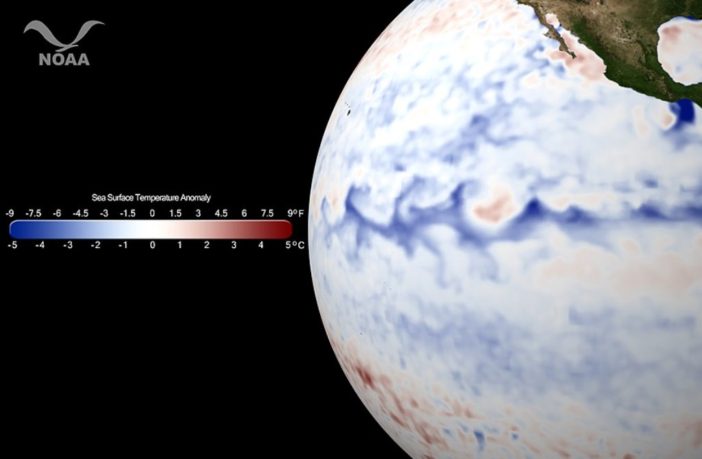The second week of July 2018 saw record high temperatures from Europe to Africa. The Guardian thinks we are heading for the hottest La Niña year ever. The La Niña events occur when the equatorial sea-surface temperature in the Pacific Ocean cools. This affects atmospheric circulation, and consequently rainfall and temperature in specific areas around the world. However, this time the temperature is going in the opposite direction.
Meteorologists Reporting Record High Temperatures

Algeria has experienced the highest recorded temperature ever in Africa, 51.3º C (124.3º F) in the Sahara Desert. Moreover in Britain, the River Kennet in Wiltshire has stopped flowing. Scores of ancient burial sites across Wales are now visible, in patterns of growth in ripening crops and parched grasslands.
California has experienced power shortages as air conditioners stretch resources to breaking point. Tianxiang in Taiwan reported 40.3º C (104.5º F) on Monday. However Quriyat, on the coast of Oman announced the world’s highest ‘low overnight temperature’ of 42.6º C (108.7º F) this week too. The World Meteorological Association has confirmed the record high temperatures are ‘at odds with La Niña, which we usually associate with cooling’.
What’s Unusual is the Hemispheric Scale of the Event

“What’s unusual is the hemispheric scale of the heatwave,” said Michael Mann, from Earth System Science Center at Pennsylvania State University. “Because it’s not just the magnitude in any one location, but that high temperatures are being seen over such a large area.”
Concerns are developing that climate change is blocking hot, and cold weather fronts more frequently. This causes droughts and storms to linger, amplifying the damage they cause. The devastating recent floods in Japan are but one example, and the wildfires in northern Russia another.
Are climate watchers correct to fear that these record high temperatures will accelerate the melting of permafrost, releasing methane? This is a far more potent greenhouse gas than CO2. Could this make future heat waves even more severe?
Related
Climate Change and the Harsh Consequences
Climate Change: Earths Greenhouse Blanket
Preview Image: La Nina in Pacific Ocean




